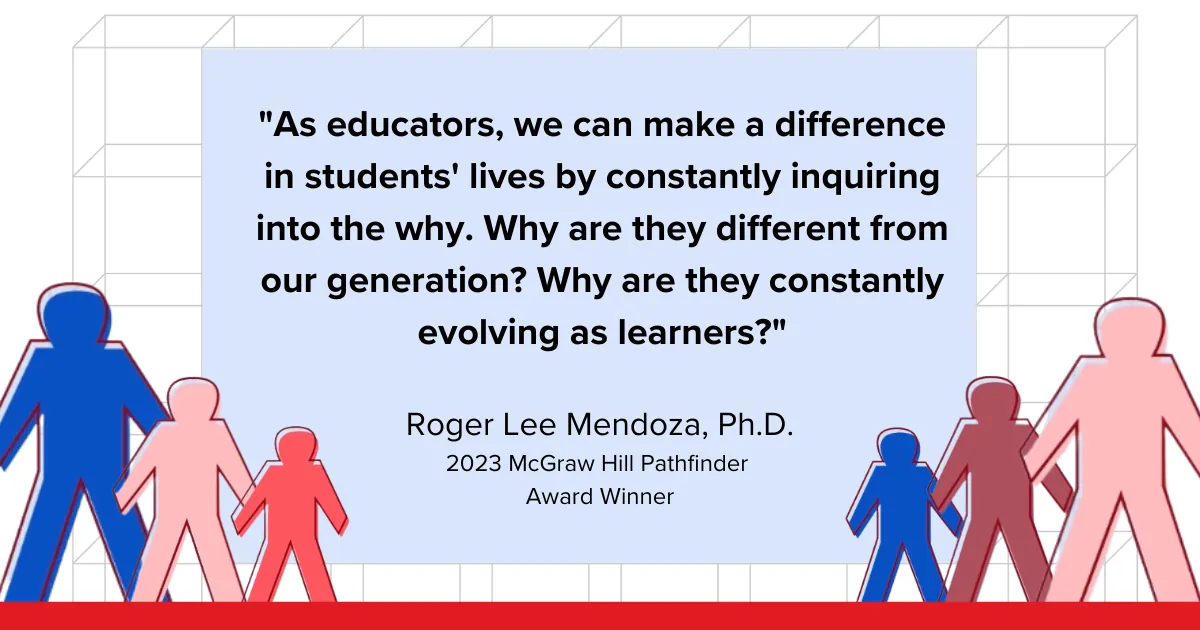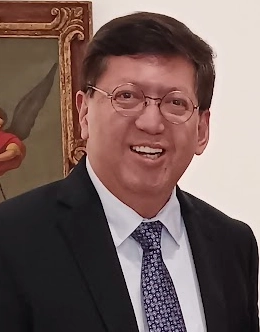My Account Details
Can games, poetry and pop music help students learn healthcare finance?
Meet the educator dreaming up clever ways to keep learners engaged.

Poetry, Taylor Swift songs, dance, role-played case work and Jeopardy-style gaming may be the last things you'd expect to find in a healthcare finance course. But when that course is taught by Roger Lee Mendoza, a professor of business at California State University in Los Angeles (Cal State LA), who was a 2023 winner of a McGraw Hill Pathfinder Award, you should expect all of that and more.
That's because he's a big believer in connecting with students. Early in his career in academia, he saw how important it was to learn about his students' cultures, values and interests, and — here's the special part — adapt his teaching approach to best support them.

Mendoza's students are as diverse as the city the university calls home, and getting to know everyone takes time. So he makes a point to arrive to class a few minutes early and usually stays for hours afterward to answer questions. This is in addition to keeping regular consultation hours and serving as an advisor to a handful of student organizations.
Is the extra effort worth it? Absolutely, he says. These interactions often yield insights that help spark in-class discussions and shape the way Mendoza introduces new concepts.
Which brings us to Taylor Swift. Mendoza likes to tee up dry, technical and quantitative concepts with highly creative formats like pop songs, poetry and games. He's noticed that this combination doesn't just generate students' interest in the subject, it also helps them engage more deeply with the material.
"It's very important that we understand what today's students are all about," Mendoza explains. "There are more demands on their lives today. They are less classroom learning inclined, but they're also less into socializing. We have to understand that there are fundamental reasons why. As educators, we can make a difference in their lives by constantly inquiring into the why: Why are they different from our generation? Why are they constantly evolving as learners? Once we do that, we can become more inclusive and more equitable in our approaches."
In fact, as Mendoza sees it, teachers should always be learning from students and from each other. In addition to his conversations with learners, he also seeks out input from colleagues. He regularly invites other faculty members to observe his classes and offer comments on what they think worked and where he can improve. An equally prodigious scholar, he publishes frequently, presents regularly at industry conferences and participates in scholarly forums where he can test new models of learning and teaching. These types of pressure tests allow him to sharpen his skills and help others to do the same.
If Mendoza's pioneering approach has proven anything, it's the value of making connections and being willing to try something new. "I believe that teaching is a fundamental primary function of academics, and that is one thing that constantly motivates me. Teaching should not always be formal. It will be in the many ways that you present a concept, that you bring in different perspectives," he explains. "This is not a new idea, but the way you bring in students is new. It's what makes for creativity, originality, ingenuity and constant adaptation. I like to look at teaching like a living tree: It's constantly evolving, constantly branching out. It's constantly changing with the seasons."

To learn more about the McGraw Hill Pathfinder Awards program visit: https://www.mheducation.com/pathfinder-awards.html.